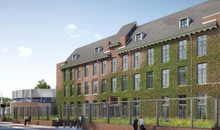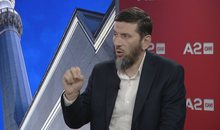
 Flash News
Flash News
International drug search: 36-year-old arrested in Durrës (NAME)
Veliaj's appeal to be heard today in the High Court
Today's hearing at the Fier Court, Salianji requests conditional release
Taxi collides with truck on Lezhë-Shkodër axis, driver taken to Trauma in serious condition
At least 91 dead in Texas floods
From Kamenica in the USA, the girl who is researching the early detection of cancer
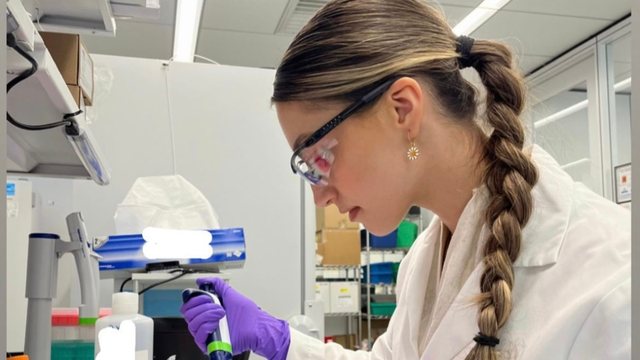
A lemon changed the life of Esma Fera from the village of Karačevë e Poshtme in the municipality of Kamenica.
Curiosity about molecules, DNA, and genetics, had led him to do an experiment on this tree at home, with the tools his biology professor had given him.
The success of this experiment, which Esma did in 2019, as an 11th grade student, convinced her that she should continue her passion for molecules and genetics in a developed country like the USA.
Today, Esma is in her fourth year of molecular biology studies at the University of New Haven in the state of Connecticut, and is a researcher for the early detection of ovarian cancer at the prestigious American University, Yale.
The experiment concerned the isolation of DNA in lemon fruit.
"(After the experiment) it was an indescribable feeling, because finally what we learned in the classroom started to make sense in real life. This has made me understand that if I continue to study something related to biology in Kosovo, it would be very difficult to have this kind of access to science", she says.
According to her, the school did not offer her the opportunity to pursue her passion - molecules.
"Even though I was in the 11th grade, I started reading university literature books on genetics. I have read about various experiments in genetics, but we have not been able to carry them out in the laboratory. Therefore, I watched the experiments on YouTube", says Esma.
She has been following her dream in the USA for four years now, thanks to various scholarships, help from her family, donations and her work.
She admits that the biggest challenge for her has been "adapting to a completely new academic system".
"I was impressed by the education system and the professor-student relationship in the cooperative form. Here, professors are the best mentors if the student wants to have a very successful career, and they have mentors not only during professional and academic development, but also after they finish university", says Esma Fera.
Precisely thanks to the mentor-student connection, Esma had joined her professor and within a program at Yale University, she had become part of the team researching the early detection of ovarian cancer.
"The work that we do at Yale is the detection of certain genes that have a very important role in the detection of this cancer, and we have already discovered one gene and we are doing various experiments to collect the data and we hope that to publish the article", she says.
Esma's day starts early when she prepares for lectures. After the lectures, Esma holds the classes in the role of molecular biology assistant. The rest is spent in the laboratory, while the evening is dedicated to assignments, studies and projects.
"The educational system here means that students are engaged all the time, and when you have other commitments such as work and scientific research, time management must be at a high level," she says.
According to her, researching cancer is not easy, but the cause is greater than the challenge.
"Definitely, the science we do is something very interesting, it's not something we do every day, but every day it explores different things. It's definitely very challenging, but knowing what you contribute, it's a phenomenal feeling," she says.
Being thousands of kilometers away from her family, Esma says that she often misses her parents.
"In the first year it was something I did not expect, that it will be so very difficult. But now, in my fourth year, I know how to balance myself. When you are busy with a lot of studies, even with a lot of work, it's not that you don't think, but you still have something to do. But when the weekend or spring or autumn vacation comes, then it is a little more difficult, because you see that everyone goes to the family", says Esma.
She is convinced that her success is not only hers, but is also the result of the work and support of her parents, whom she says have been "the biggest support":
"I believe they are pleased that our joint efforts are paying off. In particular, they feel happy that I have the opportunity to make an important contribution at a global level in the field of science."
Esma plans to one day bring the knowledge she has gained from her studies in New Haven, internship at the pharmaceutical company AstraZeneca and research at Yale to Kosovo.
"I plan to get a work experience, then develop my doctorate studies in America, but the idea is to always return to Kosovo. In Kosovo, there is a lack of cooperation between the hospital, the university and the students, and I think this should be linked. Who will connect it, I still don't know, but I will be very happy to be part of it", she says.
For young people who want to do scientific research, she advises that they should not give up even if the results sometimes do not turn out as expected.
"In science, we don't always get the result we expect, don't forget that to research means to create new knowledge, because what you research is not yet known to the public. Therefore, it is not easy to create knowledge, science has challenges. You can do a research project and not get results, but you don't have to stop. You should know how much you contribute to the world with what you do, and that is not something you should forget," she emphasizes./ REL
Latest news


Thethi, tourists "criticize" modern trend
2025-07-08 09:39:54
Fire on Mount Dukat still active, Llogara National Park at risk
2025-07-08 09:28:12
Veliaj's appeal to be heard today in the High Court
2025-07-08 09:16:02
"Bad sign for democracy"/ Parliament neglects reporting by institutions
2025-07-08 09:04:56
Today's hearing at the Fier Court, Salianji requests conditional release
2025-07-08 08:56:39


Horoscope, what do the stars have in store for you today?
2025-07-08 08:16:19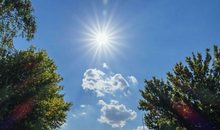
Weather forecast/ How temperatures will vary throughout the day
2025-07-08 08:02:37
Morning Post/ In 2 lines: What mattered yesterday in Albania
2025-07-08 07:48:30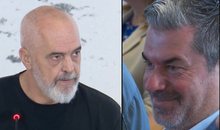


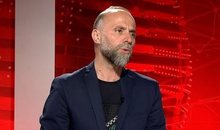


Marrëdhënia që s’është romancë, por s’është as thjesht kolegiale
2025-07-07 21:39:13
Citizen is asked to pay 2.5 million for a non-existent meter
2025-07-07 21:28:03

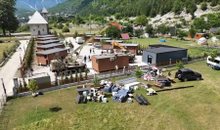


What is the ideal air conditioner temperature in summer?
2025-07-07 20:53:46
GJKKO left him in prison, Meta appeals the decision
2025-07-07 20:38:05
Where is Ronaldo after missing Diogo Jota's funeral?
2025-07-07 20:38:04

Messages from the author who killed Ilaria Sulla in Rome are revealed
2025-07-07 20:20:12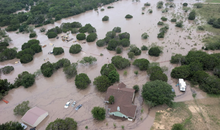
At least 91 dead in Texas floods
2025-07-07 20:12:02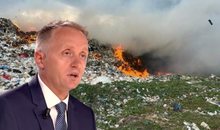
Elbasan, choked by smoke, scorched by conscience
2025-07-07 19:48:16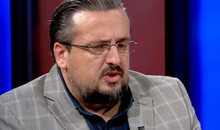
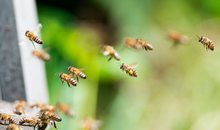
Swarm of bees attacks citizens in France, 24 people end up in hospital
2025-07-07 19:32:03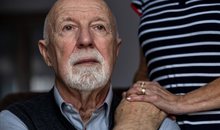
Dementia/Hearing loss may be a warning sign
2025-07-07 19:13:06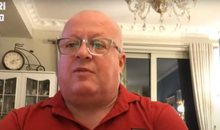
The decision for Malltez, Gjokutaj: Boomerang for SPAK and the Court
2025-07-07 19:01:08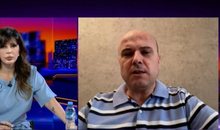

Former Supreme Court member acquitted of asset concealment
2025-07-07 18:36:40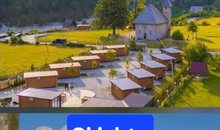

WIIW expert in Politiko: Brain drain is steadily weakening the Albanian economy
2025-07-07 18:11:41
Heart health is at risk from extreme heat, here's what you should be careful of
2025-07-07 18:10:18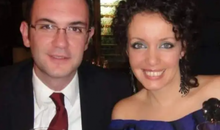
Today Gert Bogdani would celebrate, Edlira Çepani's touching dedication
2025-07-07 17:40:45
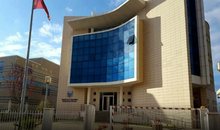

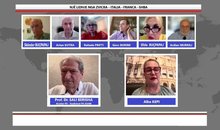
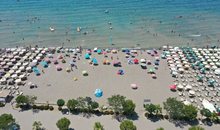
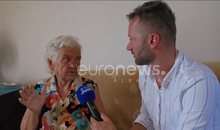

The striker severely accuses the Fenerbahce club: They tried to drug me
2025-07-07 16:21:03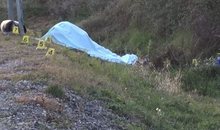
A decomposed body is found in Kolonjë, initial suspicions
2025-07-07 16:03:31
Accident in Saranda, car hits motorcycle, one injured
2025-07-07 15:58:56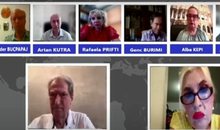

The most fertile age for men and women
2025-07-07 15:40:52
Locals, Rama candidate in 5 municipalities
2025-07-07 15:32:22
Blushi: Meta's criminal kidnapping, incomparable even to Navalny's in Russia
2025-07-07 15:20:34
Meet the iPhone 17 Pro, the main innovations in design and technology
2025-07-07 15:09:09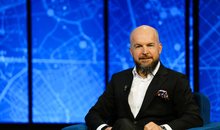
Why the release of Abi Malltez does not free him; much less Albania
2025-07-07 15:00:12
‘Lidhjet klienteliste’ të mjekëve mbushin recetat e pacientëve
2025-07-07 14:57:33
Poland imposes border controls with Germany and Lithuania
2025-07-07 14:48:15

Caught transporting firearms from Kosovo to Albania, young man arrested (NAME)
2025-07-07 14:37:47
Theo Hernandez flies to Saudi Arabia for medical check-ups
2025-07-07 14:26:47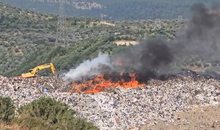

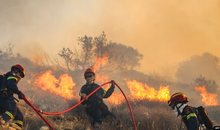
Scorching heat, Greece orders mandatory work holidays
2025-07-07 13:54:25


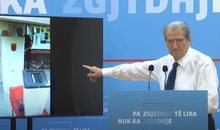

Trump expects Netanyahu to discuss Gaza ceasefire
2025-07-07 12:54:27
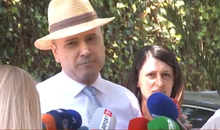
GJKKO releases Jamarbër Malltezi from house arrest
2025-07-07 12:35:02
Tourism among contrasts
2025-07-07 12:31:01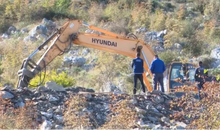
IKMT action in Theth, starts demolition of unauthorized constructions
2025-07-07 12:24:18
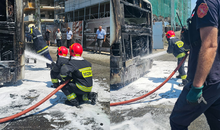
The Tirana-Kamëz line is destroyed by urban fire
2025-07-07 12:00:24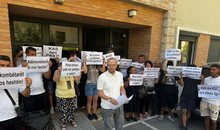
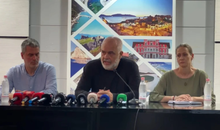

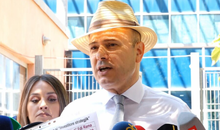

Poor direction!
2025-07-07 11:16:01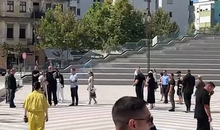
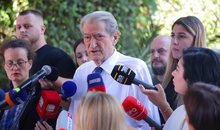

Rama to gather the country's mayors on July 9
2025-07-07 10:43:31
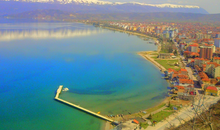
Ohrid Natural Park on the way to UNESCO's "black list"
2025-07-07 10:25:58

Registrations for the new school year begin in e-Albania
2025-07-07 09:59:09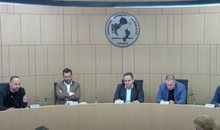
KAS decides the "fate" of the elections in four districts of the country today
2025-07-07 09:50:51
Rama does not give up on Vlora, visits the municipality again
2025-07-07 09:39:11
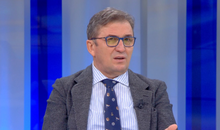
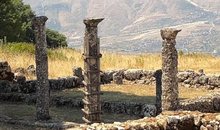
Fires in Gjirokastra, flames very close to cultural monuments
2025-07-07 09:12:49

Foreign exchange, the rate at which foreign currencies are sold and bought
2025-07-07 08:39:57

Horoscope, what do the stars have in store for you today?
2025-07-07 08:14:17
The week starts with scorching temperatures, the thermometer reaches 37°C
2025-07-07 07:58:36
Morning Post/ In 2 lines: What mattered yesterday in Albania
2025-07-07 07:45:15